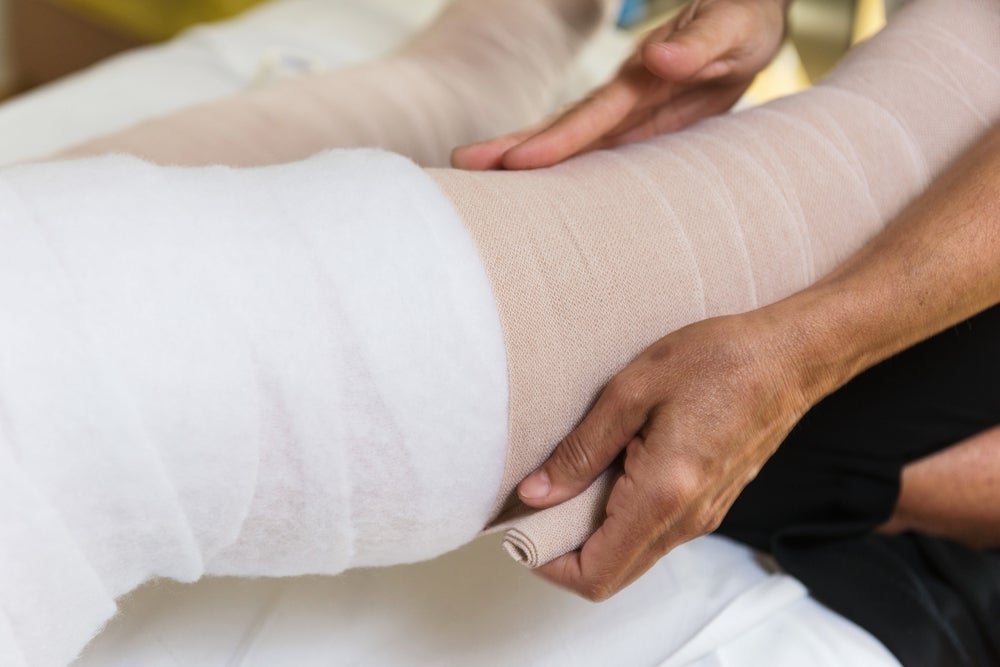

Abeona Therapeutics’s pz-cel (prademagene zamikeracel) has received a US Food and Drug Administration (FDA) priority review, reducing the review time for the cell therapy from ten months to six.
The agency set a Prescription Drug User Fee Act (PDUFA) date of 25 May 2024, adding that it does not plan to hold an Advisory Committee meeting to discuss the drug’s approval, according to a 27 November press release. If the FDA awards a positive decision on that date, the approval would come a year after the first therapy, Krystal Biotech’s Vyjuvek (beremagene geperpavec-svdt), was approved in DEB.

Discover B2B Marketing That Performs
Combine business intelligence and editorial excellence to reach engaged professionals across 36 leading media platforms.
Abeona’s biologics licence application (BLA) for pz-cel is for the treatment of patients with recessive dystrophic epidermolysis bullosa (RDEB).
The US-headquartered biopharma’s cell therapy, originally called EB-101, was granted rare paediatric designation for dystrophic epidermolysis bullosa (DEB), including RDEB, in May 2017. The agency has also granted pz-cel with regenerative advanced therapy, breakthrough therapy, and orphan drug statuses.
Abeona requested priority review when submitting its BLA as the drug’s rare paediatric designation was a qualifying criterion. If the therapy is approved next year, Abeona could be eligible for a priority review voucher.
This voucher would allow the company to fast-track a future candidate of its choice through FDA review, meaning it will reach the market four months sooner if approved. Abeona could also sell the voucher for a quicker cash injection – biotechnology company bluebird bio sold two of its vouchers this year for $95m and $103m this year.

US Tariffs are shifting - will you react or anticipate?
Don’t let policy changes catch you off guard. Stay proactive with real-time data and expert analysis.
By GlobalDataPz-cel delivers the functional collagen-producing COL7A1 gene into a patient’s skin cells using a retroviral vector. In RDEB, a defect in the COL7A1 gene means individuals cannot produce the type of collagen needed to anchor the upper layers of the skin. The rare connective tissue disorder is characterised by severe skin wounds that are hard to treat.
Abeona’s therapy is delivered as gene-corrected keratinocyte sheets which are transplanted onto a wound. Krystal Biotech’s Vyjuvek, approved by the FDA as the first treatment for both recessive and dominant types of DEB in May 2023, is a re-dosable gene therapy applied topically as a gel that restores functional copies of the COL7A1 gene.
Abeona’s BLA was supported by data from a pivotal Phase III trial (NCT04227106) investigating the therapy’s ability to facilitate wound healing and reduce pain in RDEB patients. Despite a partial clinical hold in 2019, the trial met both co-primary efficacy endpoints with no serious treatment-related adverse events. Abeona announced the positive results in November 2022 in tandem with securing a $35m private placement financing.
Abeona said the Phase III trial data, along with confirmatory evidence from a Phase I/IIa trial (NCT01263379) indicate that a one-time application of pz-cel delivered on chronic wounds led to sustained healing and pain reduction.
The company raised an additional $25m in July to help prepare for pz-cel launch activities.
Cell & Gene Therapy coverage on Pharmaceutical Technology is supported by Cytiva.
Editorial content is independently produced and follows the highest standards of journalistic integrity. Topic sponsors are not involved in the creation of editorial content.


